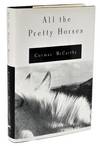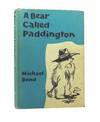
A British Man Who Helped Settle Some Of The Post-Revolutionary War Claims Asks About Getting Paid For His Diplomatic Service: “Did Not Govr. Johnstone Propose To Entrust Him A Considerable Sum Of Money For A Particular Purpose Which He Declined”
by GEORGE JOHNSTONE
- Used
- Signed
- Condition
- See description
- Seller
-
South Orange, New Jersey, United States
Payment Methods Accepted
About This Item
GOVERNOR GEORGE JOHNSTONE (1730-1787). Johnstone was a Royal Navy officer who served during the American Revolution. He was a director of the East India Company and was the first Governor of West Florida from 1763 to 1767. FREDERICK NORTH, LORD NORTH (1732-1792). North was the British Prime Minister during the American Revolution. Two letters related to the post-Revolutionary War claims to compensate American loyalists who lost money and property during the conflict. The Americans, per the Treaty of Paris in 1783, were supposed to restore the property of British subjects, namely the Tories. When it was apparent that this was not going to happen, the British appointed commissioners to inquire into losses and award compensation. a) ALS. 3pg. 7 ¼” x 9”. June 9, 1786. London. An autograph letter signed “Jno Patterson” to Governor Johnstone about payment for his negotiations with the new United States: “I am very sorry to be under the necessity of giving you any trouble at present, but having in my memorial to the Commissers. for examining American claims dated the 18th March 1784 – taken the liberty to refer to you, and the hearing of that memorial being fixed for Wednesday the 14th Inst. I am called upon for the proofs I then referred to Wsh. I hope will please my excuse. The following is the paragraph in my memorial ‘Upon my return to New York from Philada in April I recd letters from one of my friends in London acquainting me that commissers. Would be immediately appointed to treat with Congress and that the Minister was pleased to desire I wd. remain in America – That upon the arrival of Commissrs at New York, I waited on Govnr. Johnstone being formerly a little known to him, and was sent for by Mr. Eden to whom I was personally a stranger, and during their stay at New York, those gentlemen honored me on several occasions with a considerable degree of their confidence.’ The above mentioned letters sir were from my Bron. by desire of Lord North, with the reasons for which you were afterwards well acquainted and in consequence thereof, you honored me with the degree of confidence which my memorial mentions – Upon which I beg leave to state the following questions, written answers to Wsh. I understand will satisfy the board. 1st. Did Governor Johnstone know before he left England that Mr. Patterson had been wrote to by desire of Lord North, not to leave America until the Commissers. for restoring peace &c should arrive? 2nd Was not some confidential and secret business entrusted to Mr. Patterson by Lord North in conjunction with another gentleman and did not Govr. Johnstone and Mr. Eden confide in him in the prosecution of that business? And did he not acquaint himself to their satisfaction…3rd Did not Govr. Johnstone propose to entrust him a considerable sum of money for a particular purpose which he declined? If you have the smallest objection to the last question I beg you will omit it, but I have not doubt but you will recollect the circumstance; it was at your own house in the back room and my friend present…We both declined the offer, but thanked you for your confidence…I need not ask you Sir, to be explicit on the above points who are never otherwise, but I must entreat you to recall them to your recollection – the absence of Mr. Eden and the shortness o the notice I have recd. Has obliged me to trouble you or I would not do it, and I hope I may be honored with your answer, so as to have it next Tuesday…”. The letter has dark ink and is in fine condition. b) AMS. 4pg. 7 ¼” x 9 ¼”. June 14, 1786. Taplow. An autograph manuscript signed “Govr. Johnstone” answering Patterson’s previous letter. The Governor wrote this manuscript that is entitled on the last page “To the Commissioners appointed to Settle the American Claims”: “Mr. John Patterson has transmitted to me the following queries to which he requests. I will transmit only Answers to your Board as being requisite in support of his claims. That the Answers may appear more distinct & I have inserted the Queries in one column & my answers in the Column opposite…”. The answers Johnstone wrote are: “1st Govr Johnstone did not know before he left Engd that Mr. Patterson had been wrote to by desire of Lord North not to leave American until the Commissrs. For restoring Peace &c should arrive”, “2d. Upon the arrival of the Commissrs. at New York it did appear that some confidential & secret Business had been entrusted by Lord North to Mr. Patterson in conjunction with another Gentleman & Govr. Johnstone in company with Mr. Eden had two or three conversations with Mr. Patterson…” and “3rd Govr. Johnstone does not recollect the least trace of ever having offered to entrust Mr. Patterson with a considerable sum of Money for a particular or any purpose & if any such conversation ever did pass it must have been done with a view of misleading Mr. Patterson’s friend who Mr. Patterson says was present & who was soon to go to the country…Mr. Johnstone says no more upon this subject. However to convince the Commissrs. how visionary all such extensive money transaction were, it may be necessary to observe that Mr. Johnstone had no Publick money he could lift or dispose of…All the Publick Money Mr. Johnstone ever received or distributed on the Commission to North America was 300 £, two hundred & thirty pounds of which was paid on the instant it was received, to induce a Gentleman to undertake a Voyage to Philadelphia whose name Govr. Johnstone has no difficulty in transmitting to the Commissrs…”. The manuscript has light soiling and a vertical fold.
Reviews
(Log in or Create an Account first!)
Details
- Bookseller
- Stuart Lutz Historic Documents, Inc.
(US)
- Bookseller's Inventory #
- 5153
- Title
- A British Man Who Helped Settle Some Of The Post-Revolutionary War Claims Asks About Getting Paid For His Diplomatic Service: “Did Not Govr. Johnstone Propose To Entrust Him A Considerable Sum Of Money For A Particular Purpose Which He Declined”
- Author
- GEORGE JOHNSTONE
- Book Condition
- Used
Terms of Sale
Stuart Lutz Historic Documents, Inc.
30 day return guarantee, with full refund including shipping costs for up to 30 days after delivery if an item arrives misdescribed or damaged.
About the Seller
Stuart Lutz Historic Documents, Inc.
Biblio member since 2009
South Orange, New Jersey
About Stuart Lutz Historic Documents, Inc.
Stuart Lutz Historic Documents strives to bring you the finest in historic documents, autographs, letters, and manuscripts. We specialize in the correspondence of "household famous" people, such as the Presidents, Revolutionary War and Civil War figures, writers, scientists, entertainers, musicians, notable women, African-Americans, Signers of the Declaration of Independence, business leaders, and aviators. We also sell great content letters signed by eyewitnesses now lost to history's dust.
Glossary
Some terminology that may be used in this description includes:

